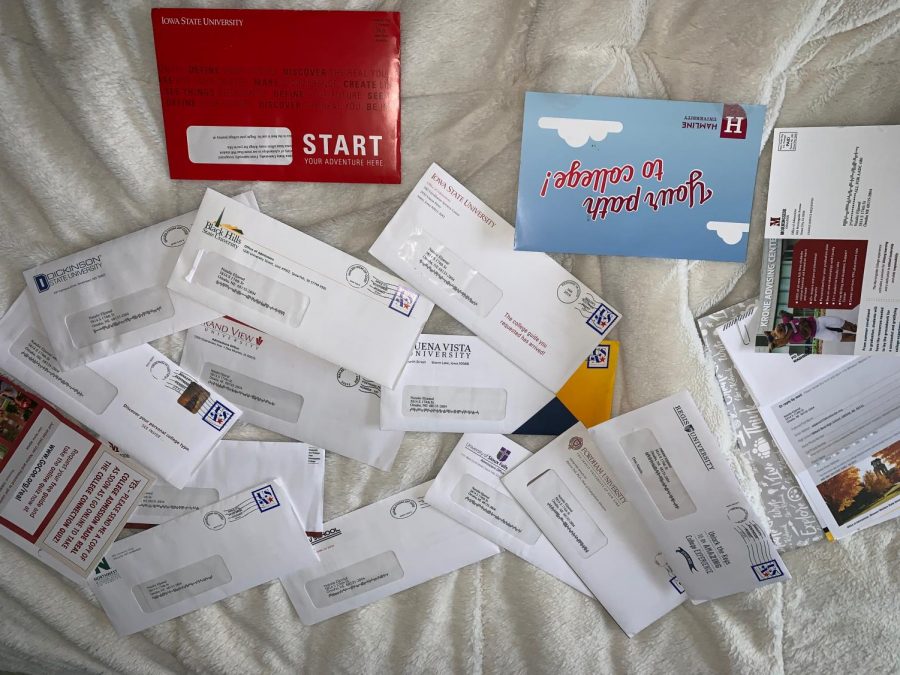College Recruitment Mail
February 12, 2019
Starting freshman year, students are bombarded with the thought of college. They are set to start thinking about what they are going to study and where they are going to go. Parents and school advisers push this thought in students mind from the beginning of middle school and keep going on from there. For many students, it can be extremely overwhelming to have to plan out the next four years of their life. Choosing colleges is not like buying a new pair of shoes, serious thought and consideration must go in, because going to college affects their entire life afterwards.
Something that doesn’t help however, is spam from colleges sending you information about their college. Students complain about the spam mail that they receive from universities and simply trash whatever they recieve, so therefore. Colleges need to choose a better way to recruit students instead of sending them pointless mail that comes with a tour guide that students did not ask for.
Taking standardized tests like the ACT and SAT enables colleges to gain access to send their pamphlets to high school students. When teenagers take these tests, students select the yes category so they can receive information from select colleges, but they don’t anticipate to receive hundreds of mail and emails from colleges. Even if they select no, it wouldn’t be surprising if they still recieve mail. If they knew that they were going to get sent thousands of emails from schools that they have no interest in, they would have never signed up.
If anything, colleges just annoy students with all the campus guides that they send. In a span of one day, I have received over 10 different guides that I “requested”. My email also gets filled up with countless different colleges daily, which not only makes my email overflow, but also makes it harder for me to find important emails from teachers or emails about homework. If I really wanted to learn more about a specific university I could have personally looked them up and researched them, but instead, colleges choose to annoy teenagers with their spam mail, that is not only being sent electronically but also to their homes. This is also concerning because it is a lack of privacy.
However, there is an option to stop receiving emails from colleges, but it is a huge pain to do it one at a time and not only that, but some of the option buttons are hidden in the email. This makes the process even harder because other new colleges will still try to contact you. Students receive a vast majority of emails from colleges they have no interest even looking in. Their email ends up getting so cluttered that there isn’t even a point of cleaning it out because the same thing will happen in a day or so. Even if a college that people are interested in contacts them, the chances of students seeing it is unlikely due to the spam, students either just stop looking through their email or just delete their entire inbox.
Receiving all of this mail could overwhelm students with the thought of college constantly going through their head. If they want to know about a specific college, they could do their own research to find something that fits their own needs. Receiving a tour guide is not enough to sway someone’s decision to attend a college. Serious consideration must be made.
Not only does this waste paper, but this also wastes their time and ours, having to sort through emails upon emails is tedious and not needed. Students will reach out to the colleges that they have interest in and if they don’t they still aren’t asking for a spam of emails to be sent to their inbox every ten minutes. Also many students don’t reply to all the mail that the colleges receive, the colleges are not being beneficial by spamming students with the unneeded mail. The mail that they send are not going to change students mind on where to attend college.







